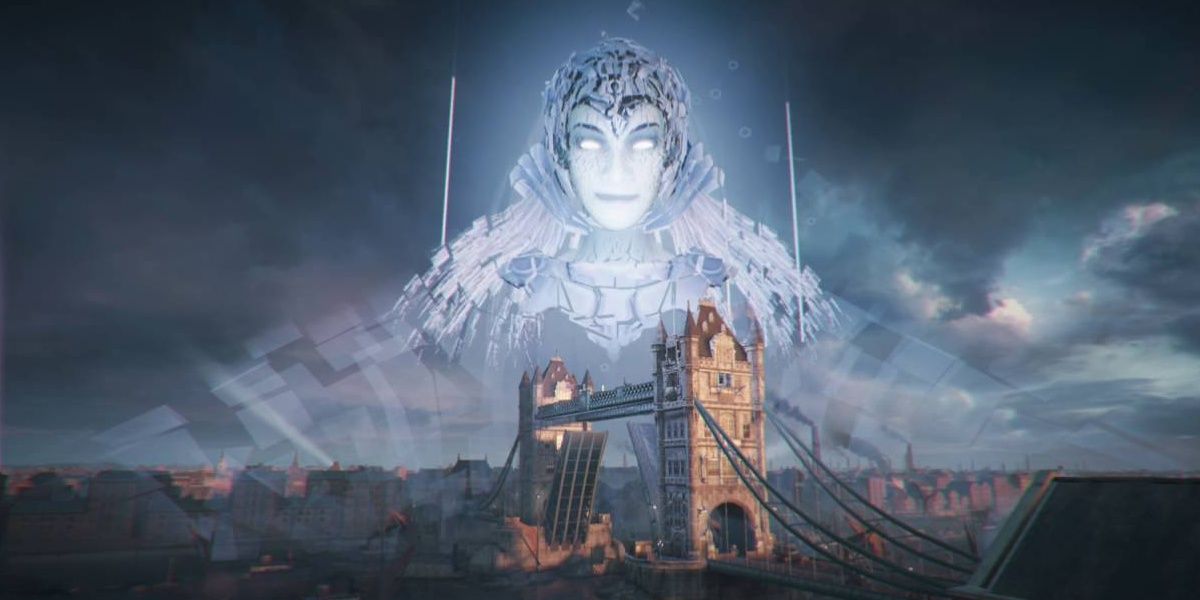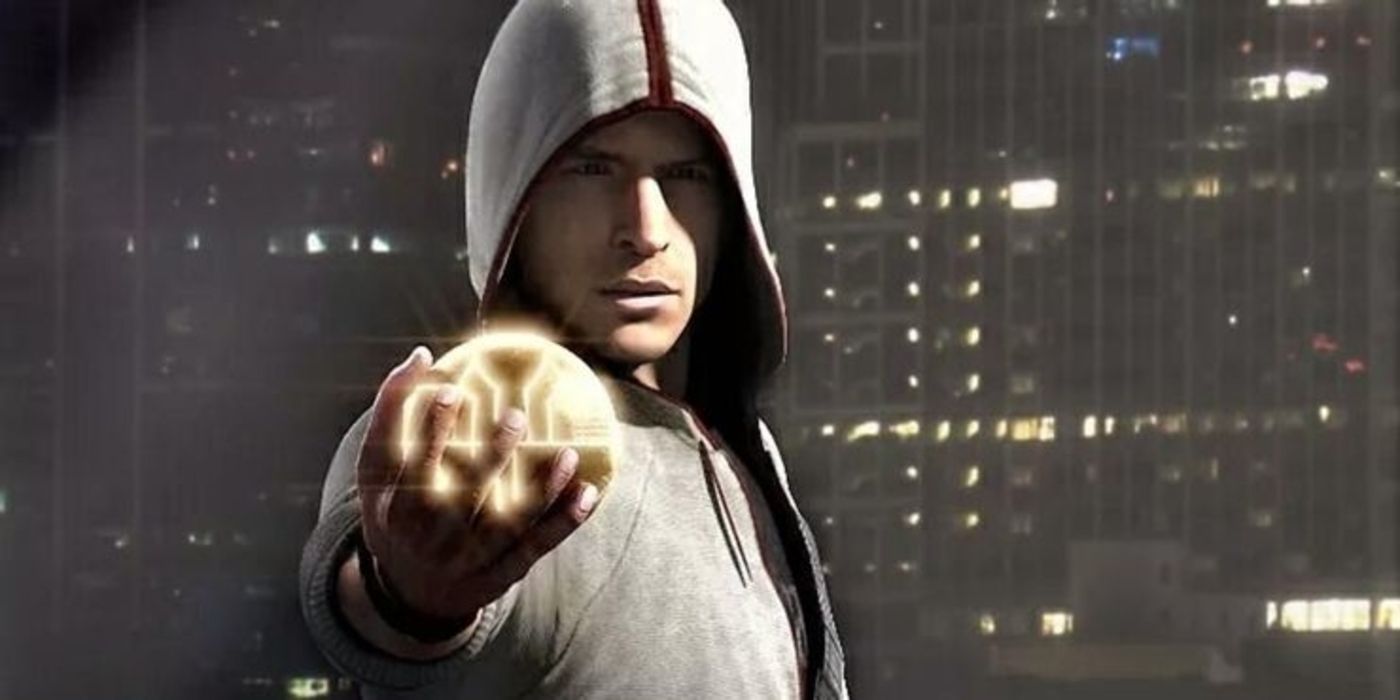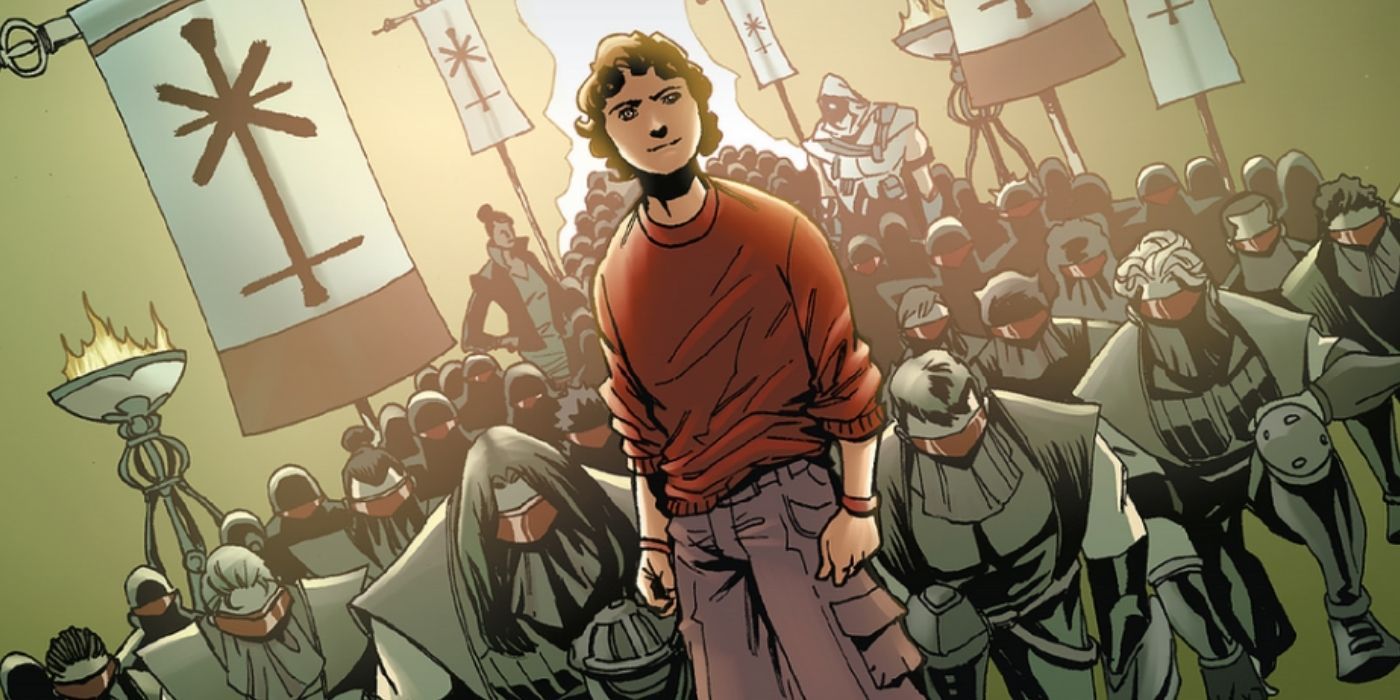During the early days of the Assassin's Creed franchise, players were introduced to the character of Juno. An incredibly powerful being from an ancient past, Juno was established at the end of Assassin's Creed III to be on the path of becoming the series' next major villain. However, by the time of Assassin's Creed Origins, Juno had largely disappeared.
It may surprise some fans to know that Juno's sudden disappearance from the video games is due to the franchise's comic books, which detail the rest of her story. Though it's not the first time Assassin's Creed has expanded its lore via other mediums, but it means those who have only played the games probably don't know what happened to Juno.
First seen during Ezio's time in Assassin's Creed Brotherhood, Juno was introduced as a member of an ancient, powerful race called the Isu, or Those Who Came Before, who had evolved and ruled the Earth millennia ago. Juno had been one of a handful of Isu who used their advanced technology to communicate across time with the various Assassins of the series, hoping to prevent Humanity from making the same mistakes that led to their race's own extinction.
However, at the end of Assassin's Creed III, Juno was revealed to have been manipulating both the Humans and her fellow Isu all along. When Desmond Miles gives his life to save the world, he also releases Juno into the modern day. Desmond dies believing that his Assassin friends can deal with whatever schemes Juno will bring, though Desmond's story doesn't quite end there.
Juno next appears in Assassin's Creed IV: Black Flag, now being something of a phantom, hiding out in the corners of technology and unable to take a solid form. She is aided by a being called a Sage, a Human reincarnation of her long-dead Isu husband, Aita, who wants to help Juno regain a permanent, physical form. Hundreds of Sages have appeared at different times across Human History, oftentimes marked by heterochromia. This phase of Juno's story continues through each game of the series until her final appearance in Assassin's Creed Syndicate, as Juno continues to try to find a way to gain a physical body, though making little progress.
It is here when Juno's story moves to the comics, in a series called Assassin's Creed Uprising. Here, the Assassins and their age-old enemies, the Templars, work together in a temporary truce against Juno's followers, an order called The Instruments of the First Will. Caught in the middle is a young boy named Elijah, who turns out to not only be the illegitimate son of Desmond Miles, but also (in an odd twist of fate) the newest Sage.
A member of The Instruments of the First Will named Richmond was sent to kidnap Elijah in order to force him to help with Juno's revival. With Elijah's Sage DNA and an Isu artifact called the Shroud of Eden, Juno finally gains the body she had been seeking. However, Elijah's mother had been murdered by Richmond, and Elijah had been hiding the fact that he secretly vowed revenge against Richmond and Juno for it. When Juno finally gains her new body, Elijah betrays her, killing Richmond on his own, and helping an Assassin named Charlotte De La Cruz to kill Juno with the iconic Hidden Blade.
After avenging both of his parents, Elijah was last seen running out into the Australian Desert, with both Assassins and Templars believing him to be dead. This could mean Elijah chose to escape to a quiet life, or he will one day return to join the fight in a new way. Juno recently appeared in Assassin's Creed Valhalla, but these were flashbacks of her long ago in the ancient Isu past, and it seems that she is staying well and truly defeated.
Many fans who are aware of Juno's fate continue to wonder why such a major story arc of the franchise was wrapped up in the comics, some believing it to be a mistake on Ubisoft's part. Given that the Uprising series was released roughly about the same time as Assassin's Creed Origins, which was something of a soft reboot for the series, some have speculated that the developers simply wanted to focus their attention forward to all new stories for the future of Assassin's Creed.



